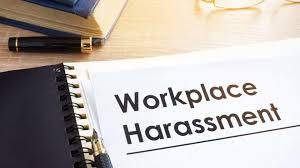What To Do If You Are Falsely Accused Of Domestic Violence

Facing false accusations of domestic violence is terrifying. You need to take quick, decisive steps to protect yourself. Start by finding a lawyer. They offer critical criminal case representation. Focus on gathering evidence that supports your innocence. This might include phone records, messages, or photos. Speak with potential witnesses who can vouch for your character. Document everything related to the accusation. Keep detailed records of dates, times, and interactions. Stay calm during this process. Avoid contact with your accuser to prevent further complications. Follow legal advice closely. Comply with any court orders or restrictions. This approach reduces risks and protects your rights. Understand the severity of the situation. A false accusation can have lasting effects on your life and reputation. Lean on trusted friends or family during this time. Seeking support is not a sign of weakness. Remember, maintaining dignity and composure is essential. Stay focused on proving your truth.
Understand the Legal Process
Knowing the legal steps in a domestic violence case helps in making informed decisions. When facing an accusation, you will likely encounter several stages:
- Arraignment
- Pre-Trial
- Trial
- Sentencing
During arraignment, you will hear the charges. You will plead guilty or not guilty. A pre-trial conference follows, allowing both sides to discuss the case. If it proceeds to trial, evidence and witness testimonies will be presented. Sentencing occurs if found guilty. Every step requires careful attention and adherence to legal protocols. Familiarize yourself with these stages through resources like The Department of Justice.
Gather Solid Evidence
Evidence is crucial in defending against false accusations. Consider the types of evidence that can support your case:
| Type of Evidence | Description |
|---|---|
| Documentation | Records of communication, incident reports, and timestamps. |
| Witness Testimony | Statements from individuals who can attest to your character. |
| Physical Evidence | Photos, videos, or objects related to the alleged incident. |
Ensure all evidence is organized and easily accessible. This aids your defense strategy significantly.
Stay Composed and Professional
Emotions can run high during this process. However, remaining calm and professional is vital. Communication should always be respectful and clear. Avoid confrontational language or actions. This behavior strengthens your position and demonstrates your integrity. Practice this approach consistently, whether interacting with your lawyer, the court, or anyone involved.
Seek Emotional Support
Dealing with false accusations can be isolating. Emotional support from trusted individuals is beneficial. Engage with family or friends who can provide encouragement. Consider professional counseling if necessary. External support systems offer perspective and emotional relief. Remember, you are not alone in this situation.
Manage Social Media Presence
Your online activity can impact your case. Refrain from posting about the accusation or related individuals. Maintain privacy settings to restrict access to your information. Social media posts can be misconstrued or used against you in court. Protect your digital footprint to safeguard your defense.
Comply with Court Orders
Court orders are legally binding. Compliance is non-negotiable. This includes restraining orders or visitation limitations. Any violation can lead to harsher penalties. Adhering to these orders shows respect for the legal process and reinforces your commitment to proving your innocence.
Prepare for Trial
If your case goes to trial, preparation is crucial. Work closely with your lawyer to build a strong case. Review evidence, practice testimonies, and outline key points. Understand the trial process and how to present your defense effectively. Confidence in court helps convey your truth.
Conclusion
Facing false domestic violence accusations requires determination and strategic action. By understanding the legal process, gathering evidence, and maintaining composure, you protect your rights and reputation. Seek emotional support and comply with legal requirements. With a clear focus and the right resources, you stand a strong chance of clearing your name and moving forward positively.




